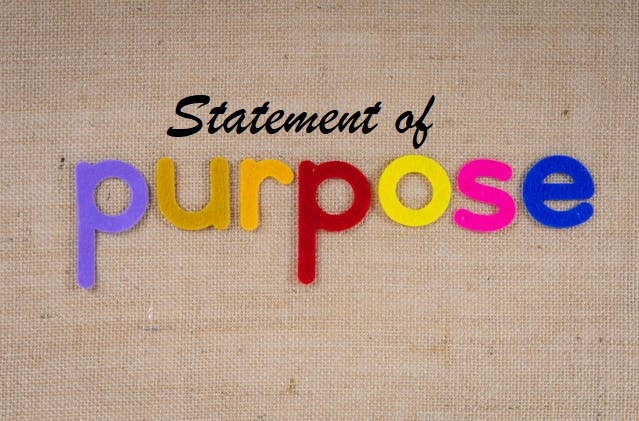Scholarship plays a pivotal role in shaping educational opportunities for countless students, opening doors to higher learning and career prospects.
Among the various types of scholarships, two significant options stand out: partial scholarships and full scholarships. These financial aid offerings differ in terms of coverage and requirements, each carrying its unique set of advantages and disadvantages.
In this article, I will tell you about the world of scholarships, dissecting the pros and cons of partial and full scholarships, and empowering you to make an informed decision on which path to pursue in your pursuit of education.
ADVANTAGES OF PARTIAL SCHOLARSHIP

1.Scholarships Reduce Financial Burden
When it comes to pursuing higher education, finances can often be a significant roadblock.
However, a partial scholarship can act as a financial lifeline for both you and your family as long as you don’t make these common mistakes when applying for scholarships.
By covering a portion of the tuition and associated costs, it effectively reduces the financial burden that higher education can impose.
This means that, as a student, you are not solely responsible for footing the entire bill, which can be quite substantial.
Instead, you share the expenses with the scholarship provider, making education more attainable.
2. Increased Access to Education.
Partial scholarships play a crucial role in widening the gates of education. The amazing things to note about partial scholarship is that they allow students who may not have been able to afford the full cost of tuition to access quality education.
This increased access can be particularly vital for individuals from economically disadvantaged backgrounds or those facing financial constraints.
By offering financial assistance, partial scholarships empower you, as a student, to step into the realm of higher education without being deterred by the daunting prospect of unmanageable expenses.
3. Opportunity for Merit Recognition

Partial scholarships offer you the chance to be recognized and rewarded for your academic or extracurricular achievements.
When you excel in your studies or demonstrate exceptional skills, these scholarships can serve as a testament to your hard work and dedication.
They validate your efforts and provide tangible evidence of your abilities.
This recognition not only boosts your self-esteem but can also open doors to additional opportunities such as internships, research projects, or networking events.
It’s a way for you, as a student, to be acknowledged and encouraged to continue striving for excellence.
4.Scholarships Increases Flexibility in Funding Allocation
Partial scholarships grant you the flexibility to allocate financial resources according to your specific needs if only you understand the creative ways to fund your study.
Unlike full scholarships that often come with rigid guidelines on how funds should be used, partial scholarships allow you to tailor the assistance to your educational journey.
Whether it’s covering tuition fees, purchasing textbooks, or managing living expenses, you have the autonomy to decide where the funds are best allocated.
This financial adaptability empowers you to make choices that align with your circumstances and priorities, making the scholarship more personally meaningful and practical.
These benefits make partial scholarships a valuable resource for you if you’re seeking to balance your financial needs with your educational aspirations.
5. Enhanced Budgetary Control
Partial scholarships provide a unique advantage by allowing you to take control of your financial planning. Unlike full scholarships, which may cover all expenses, partial scholarships require you to manage your budget effectively.
This responsibility can be a valuable learning experience, teaching you essential financial skills such as budgeting, prioritizing expenses, and making informed financial decisions.
You, as a student, become more financially savvy and prepared to handle the financial challenges that often come with life beyond the educational realm.
Check this out – Cheapest Universities in Canada for International Students
6. Broader Eligibility Criteria
Partial scholarships tend to have more inclusive eligibility criteria compared to their full scholarship counterparts.
While full scholarships may be highly competitive and limited to a specific set of criteria, partial scholarships often consider a broader range of factors, including academic performance, extracurricular involvement, and sometimes even financial need.
This broader eligibility opens doors for a more diverse pool of applicants, increasing your chances as a student regardless of your backgrounds and talents to access financial assistance for your education.
It promotes inclusivity and diversity in educational institutions, enriching the overall learning experience. These facets make partial scholarships a well-rounded option for you with your needs and aspirations.
DISADVANTAGES OF PARTIAL SCHOLARSHIPS
1. Incomplete Financial Coverage
While partial scholarship provide valuable financial assistance, they often fall short of covering the entire cost of education. This means that as a student, you may still need to find scholarship grants to bridge the gap.
This could involve taking out loans, seeking part-time employment, or relying on family contributions. The challenge here lies in managing the remaining expenses, which can be burdensome and stressful.
It’s essential to carefully calculate the shortfall and explore other financial aid options to ensure you can meet all your educational costs without excessive strain.
Read also Study Abroad Without IELTS in The UK, US and Canada Universities
2. Partial Scholarship Increase Financial Complexity

Partial scholarships introduce an added layer of financial complexity.
With a portion of your educational expenses covered by the scholarship and the rest left to your own devices, you must navigate multiple funding sources.
This complexity can be particularly challenging when it comes to budgeting and financial planning.
You’ll need to keep track of scholarship disbursements, manage personal expenses, and potentially coordinate with other financial aid programs.
The need for meticulous financial management becomes apparent, as any missteps could result in financial difficulties that affect your education.
3. Potential for High Student Debt
One of the significant drawbacks of partial scholarships is the potential for accumulating debt.
Since these scholarships often do not cover the full cost of tuition and other expenses, you may resort to taking out loans to fill the financial gap.
Over time, these loans can add up, leading to substantial debt upon graduation.
It’s crucial to be mindful of borrowing decisions and explore alternatives, such as part-time work or seeking additional grants, to minimize the burden of student loans.
Otherwise, the dream of higher education could become a heavy financial burden in the years ahead.
See this also how to get scholarship grants as a student
4.Partial Scholarship Limits Flexibility in Choosing Majors
Some partial scholarship come with restrictions on the choice of major or field of study.
Unlike full scholarships which often provide more flexibility in this regard, partial scholarships may require you to pursue a specific academic path or restrict your options within a particular department.
This limitation can be frustrating if you have a strong passion for a particular field that isn’t covered by the scholarship.
It’s important to carefully review the terms and conditions of the scholarship to ensure that it aligns with your academic and career goals.
5. Dependency on Maintaining Eligibility
Partial scholarships often come with stringent eligibility requirements, including maintaining a certain GPA or meeting specific academic milestones.
While these requirements are intended to motivate you to excel academically, they can also create pressure and anxiety.
Falling below the required GPA or failing to meet other criteria can result in the loss of the scholarship, leaving you in a precarious financial situation.
It’s essential to understand and commit to the scholarship’s requirements and be prepared to dedicate the necessary time and effort to maintain your eligibility.
While these disadvantages should be considered, they should not deter you from pursuing partial scholarships if they align with your educational and financial goals. Careful planning and preparation can help you navigate these challenges successfully.
Read Requirements For Processing Norway Student Visa in Nigeria
ADVANTAGES OF FULL SCHOLARSHIPS
1. Full Scholarship Complete Financial Coverage
One of the most significant advantages of a full scholarship is that it provides complete financial coverage for your education. This means that all your tuition fees, textbooks, and often even living expenses are covered.
As a recipient of a full scholarship, you don’t have to worry about the financial burden of paying for college or university.
This comprehensive coverage allows you to focus solely on your studies and extracurricular activities without the stress of managing educational costs.
Also Read 10 Tips For Sourcing Grant Funding Opportunities
2. Full Scholarship Reduced Financial Stress

With full financial coverage, you can significantly reduce financial stress during your academic journey
When you don’t have a full scholarship you’ll need to work part-time jobs or take out loans to cover your educational expenses. This can lead to added stress and even impact academic performance.
In contrast, as a full scholarship recipients, you can dedicate your time and energy to your studies, knowing that your financial needs are met.
This reduced financial stress can lead to improved academic performance and a more positive overall college experience.
3. Full Scholarship Enhances Academic Excellence
A full scholarship often comes with the expectation that you maintain high academic standards. While this may seem like added pressure, it can also be a tremendous motivator.
Knowing that your scholarship is contingent on academic excellence can drive you to strive for your best in your coursework. It encourages you to excel in your studies, which can have long-term benefits for your future career.
Additionally, a strong academic record opens doors to various opportunities, such as internships, research projects, and graduate school, which can further enhance your educational journey and career prospects.
These advantages collectively make a full scholarship an attractive option for students who are committed to achieving academic excellence without the burden of financial worries.
Also Read
4. Full Scholarship More Time for Extracurricular Activities
A full scholarship often grants you the luxury of having more time to engage in extracurricular activities. While academic pursuits are essential, extracurricular involvement can shape a well-rounded individual.
With your financial worries eased by the scholarship, you can explore a wider range of extracurricular activities such as sports, clubs, volunteering, or leadership roles within campus organizations.
These experiences not only enrich your college life but also enhance your personal and professional development. You can build valuable skills, form meaningful connections, and make a positive impact on your community.
5. Enhanced Networking Opportunities

Full scholarships can provide you with enhanced networking opportunities.
Many scholarship programs connect you with alumni, mentors, or industry professionals who can offer guidance and support in your chosen field.
Networking is a critical aspect of career development, and a full scholarship can open doors to exclusive events, workshops, and conferences where you can meet influential individuals in your industry of interest.
These connections can be invaluable when it comes to internships, job placements, or even pursuing advanced degrees.
See also 10 Things To Know About Studying Abroad
6. Full Scholarship Gives Freedom to Choose Major
Unlike some partial scholarships that come with restrictions on your choice of major or field of study, full scholarships often offer the freedom to pursue your academic passions.
You can select the major that aligns best with your interests and career goals without being constrained by financial concerns.
This flexibility allows you to explore diverse academic disciplines and make an informed decision about your educational path, ultimately enhancing your overall learning experience and career prospects.
7. Potential for Graduate Studies
Full scholarships can be a stepping stone towards graduate studies. Many scholarship programs, especially those funded by universities or prestigious organizations, offer opportunities for you to continue your education at the graduate level.
This can be an enticing option if you have aspirations for advanced degrees such as master’s or doctoral programs.
The financial support provided by your full scholarship can extend beyond undergraduate studies, making your journey towards higher education more seamless and affordable.
In summary, a full scholarship not only covers your educational expenses but also provides you with more time for extracurricular activities, enhances networking opportunities, offers the freedom to choose your major, and opens doors to potential graduate studies.
These advantages can significantly enrich your educational experience and set you on a path toward a successful and fulfilling future.
See also Study Abroad Undergraduate Programs
DISADVANTAGES OF FULL SCHOLARSHIP
1. Full Scholarships Are Highly Competitive
Full scholarships are often highly competitive, thereby attracting a large pool of exceptionally talented and motivated applicants. The fierce competition can create stress and anxiety for those vying for the award.
Crafting a standout application that outshines numerous others requires significant effort and can be emotionally draining.
The realization that only a small percentage of applicants will be selected can be disheartening, and the fear of rejection can discourage you from even attempting to apply.
2. Stringent Academic Requirements
Maintaining a full scholarship typically involves meeting stringent academic requirements, often requiring you to maintain a high GPA throughout your academic career.
While this expectation can motivate you to excel academically, it can also be challenging.
The pressure to maintain a specific grade point average can lead to stress, anxiety, and even a fear of failure.
Balancing this academic pressure with other aspects of college life, such as extracurricular activities and personal well-being, can be a daunting task.
Explore this – Study Abroad Tips For High School And College Students
3.Full Scholarship Limits Eligibility
Full scholarships are not available to everyone. They often have specific eligibility criteria, such as outstanding academic achievements, standardized test scores, or unique talents.
This limited eligibility means that many deserving students may not qualify for these scholarships, even if they are highly motivated and committed to their education.
This can be discouraging for you if you don’t meet the specific criteria set by scholarship providers.
4. Pressure to Maintain GPA

Full scholarships typically come with the requirement that you maintain a high GPA.
While this expectation is intended to promote academic excellence, it can also create immense pressure.
You may feel the constant stress of needing to achieve top grades to retain your scholarship.
This pressure can lead to burnout, anxiety, and a hyper-focus on grades rather than a holistic learning experience.
It’s essential for you to find a balance between maintaining your GPA and exploring other aspects of your education.
Read this – Grants For Business Owners For Growth
5. Full Scholarships Reduces Financial Independence
While full scholarships alleviate the financial burden of tuition, they can also limit your financial independence.
Some scholarships come with stipulations on how the funds can be used, which may restrict your ability to make financial decisions independently.
In addition, you may be required to report your financial status regularly to the scholarship provider, potentially leading to a loss of privacy regarding your finances.
This reduced financial autonomy can be a disadvantage for you if you value financial independence.
6. Potential for Burnout
The pursuit of a full scholarship, coupled with the pressure to excel academically, can increase the risk of burnout.
You may push yourself to your limits to meet scholarship requirements, sacrificing your mental and physical well-being in the process.
Burnout can lead to exhaustion, reduced motivation, and a decline in the overall quality of the college experience.
It’s crucial for scholarship recipients to prioritize self-care and seek support when needed to avoid burnout.
7. Limited Exposure to Financial Realities
Full scholarships can shield you from the financial realities of the world.
By covering all educational expenses, they may not provide you with the opportunity to learn valuable financial management skills, such as budgeting or saving.
Graduating without a comprehensive understanding of financial responsibilities can be a disadvantage when entering the workforce or managing personal finances in the future.
It’s important for You to actively seek financial literacy education to bridge this gap.
See also Grant for entrepreneurial & creative laid off graduates
Conclusion
In the world of higher education, the choice between partial and full scholarships is a pivotal decision that can shape your academic journey and future. Both options come with their distinct advantages and disadvantages, each bearing its weight in the pursuit of knowledge.
Partial scholarships offer financial relief, encourage resourcefulness, and recognize a broader range of achievements. They empower you to share the financial burden, enabling access to education for a more diverse pool of individuals
However, they may come with limitations, competitive application processes, and the potential for accumulating student debt.
On the other hand, full scholarships provide comprehensive financial coverage, reduce financial stress, and encourage a strong focus on academic excellence.
They open doors to graduate studies, enhance networking opportunities, and allow for greater flexibility in choosing majors.
Yet, they can be fiercely competitive, demand stringent academic requirements, and limit financial independence.
In the end, the choice between partial and full scholarships is deeply personal, hinging on individual goals, circumstances, and priorities
It’s not a matter of one being universally better than the other, but rather which aligns best with your unique educational journey.
What’s paramount is to approach this decision with careful consideration, seeking to maximize the advantages while proactively addressing the disadvantages.
Whichever path you choose, both scholarships ultimately share a common goal – to empower and enable you to reach your full potential in the pursuit of knowledge and a brighter future.












